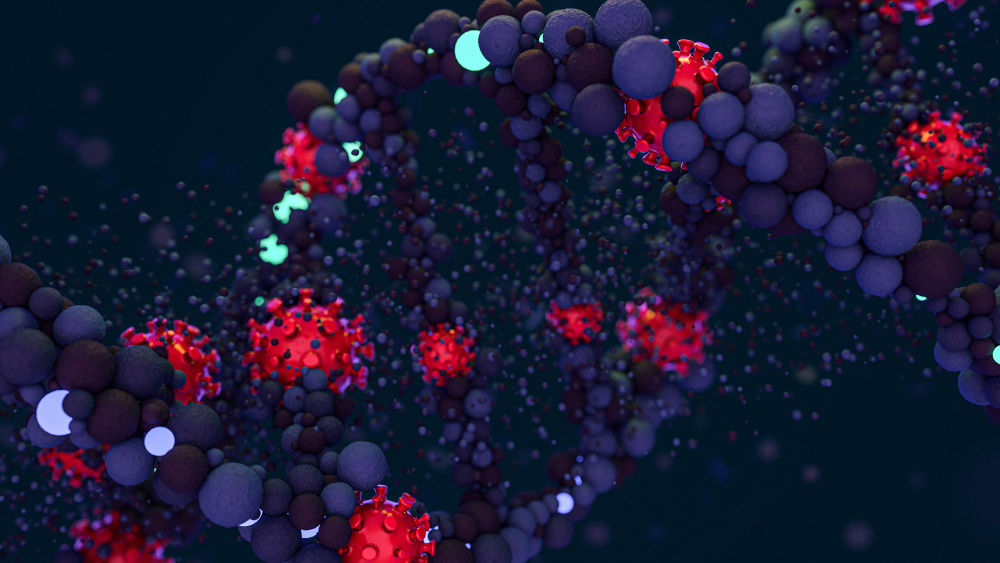By Ethan Huff

With regards to the Wuhan coronavirus (Covid-19), President Trump has repeatedly warned against a “cure” that is worse than the “disease.” And now that “cure” is the subject of new litigation that seeks justice against the political tyrants who told us all that we had to hole up at home in a mask in order to “flatten the curve.”
The Außerparlamentarischer Corona Untersuchungsausschuss (ACU), also known as the “Corona Extra-Parliamentary Inquiry Committee,” is a German group leading the charge to sue the pants off of every politician and government official out there who decided it would be a good idea to force everyone to stay home for months on end, which destroyed many small businesses while decimating the economy and ruining people’s lives.
An international class-action lawsuit, which is backed by more than 500-and-growing doctors and medical experts, aims to remedy the pain and suffering that tens of millions of innocent people have suffered at the hands of authoritarians who demanded “lockdowns” as the solution to the Wuhan coronavirus (Covid-19).
Led by Dr. Reiner Fuellmich, one of the founders of the ACU, the lawsuit demands tens of billions of dollars in restitution for those who lost their jobs, developed mental problems, lost loved ones to suicide, or who otherwise suffered immensely due to the deadly “lockdowns” that were imposed on most of the West.
These government-ordered lockdowns “caused the loss of innumerable human lives, and have destroyed the economic existence of countless companies and individuals worldwide,” the suit explains.
Dr. Fuellmich specifically calls out the Wuhan coronavirus (Covid-19) hysteria peddlers who induced “deliberate panic-mongering” in order to implement “fascist totalitarian models” of governance that were hatched by none other than communist China, the dictatorship responsible for unleashing the Wuhan coronavirus (Covid-19).
Children everywhere, Dr. Fuellmich laments, have been “traumatized en masse” by the lockdowns and mask-wearing, “with the worst psychological consequences yet to be expected in the medium and long term.” And in Germany alone, as many as 800,000 small- and medium-sized businesses have closed due to the economic fallout of such restrictions.
Lockdowns and other draconian mandates represent “crimes against humanity”
All of this was predicated by the World Health Organization’s (WHO) declaration of a “pandemic” back in March, which was fraudulent to begin with considering the fact that the Wuhan coronavirus (Covid-19) is hardly the universal death sentence that those with a horse in the race have long claimed it to be.
“This corona crisis, according to all we know today, must be renamed a corona scandal; and those responsible for it must be criminally prosecuted and sued for civil damages,” Dr. Fuellmich explains in a video that, naturally, was banned by YouTube – you can still watch it here on Bitchute, though.
Dr. Fuellmich further warns that the PCR (polymerase chain reaction) tests being used to identify “cases” of the Wuhan coronavirus (Covid-19) are fraudulent, as even the inventor of the test, Kary Mullis, admitted that “you can find almost anything in anybody” using a PCR test.
Mullis died just a few months before the Wuhan coronavirus (Covid-19) started making headlines, but the fact of the matter is that the PCR test is not a reliable indicator of anything, and can easily be used to perpetrate massive fraud on the masses.
“Under the rules of civil tort law, all those who have been harmed by these PCR test-induced lockdowns are entitled to receive full compensation for their losses,” says Dr. Fuellmich who, by the way, has been incredibly successful with past litigation.
“In particular, there is a duty to compensate, i.e. a duty to pay damages for the loss of profits suffered by companies and self-employed persons as a result of the lockdowns and other measures,” he says.
For more related news about the Wuhan coronavirus (Covid-19), be sure to check out Pandemic.news.


 By Cassie B. for Natural News
By Cassie B. for Natural News
 By
By  By Mike Adams
By Mike Adams











